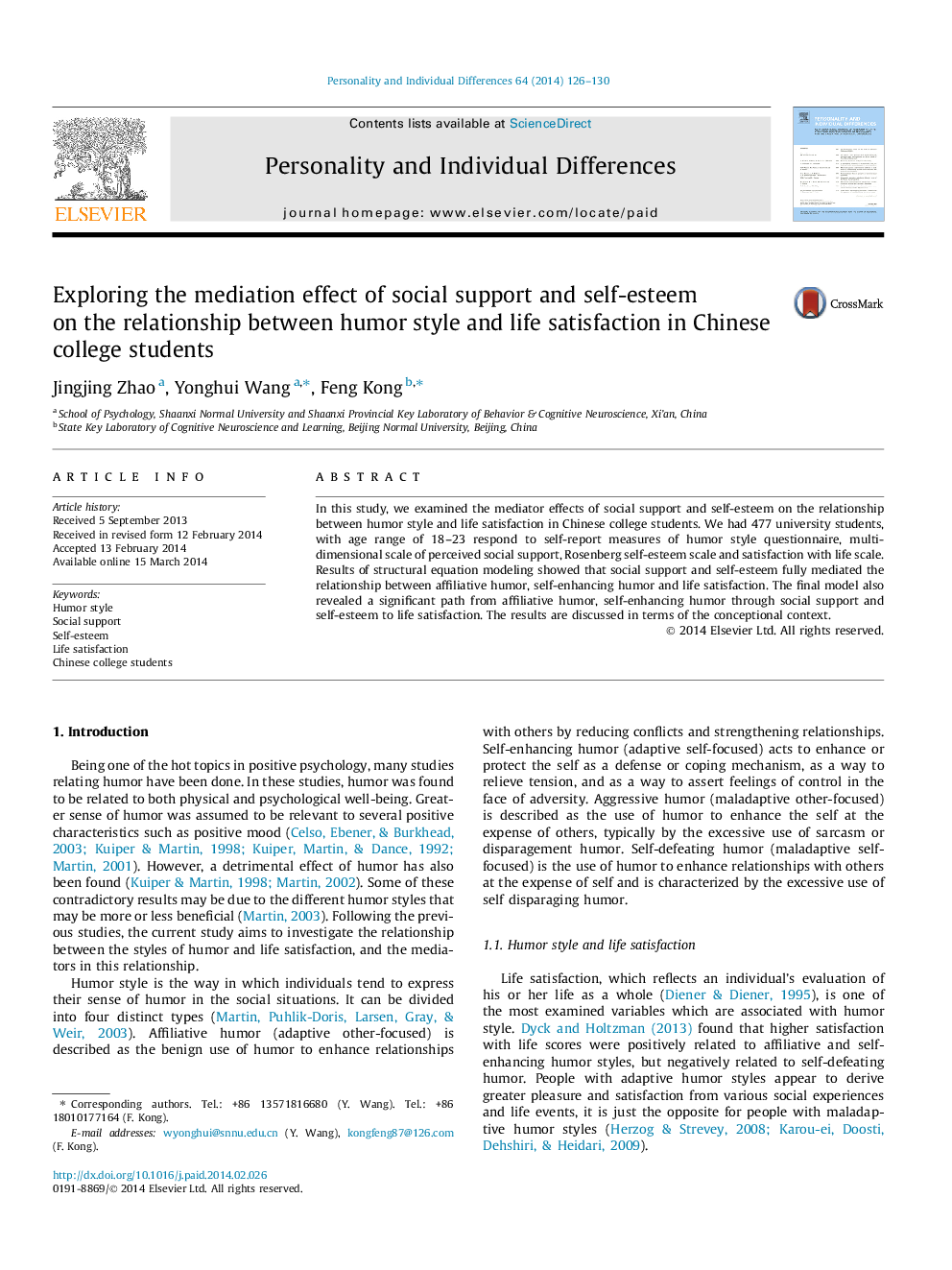ترجمه فارسی عنوان مقاله
بررسی اثر میانجی گری حمایت اجتماعی و عزت نفس در رابطه بین سبک طنز و رضایت از زندگی در دانش آموزان کالج چینی
عنوان انگلیسی
Exploring the mediation effect of social support and self-esteem on the relationship between humor style and life satisfaction in Chinese college students
| کد مقاله | سال انتشار | تعداد صفحات مقاله انگلیسی |
|---|---|---|
| 37642 | 2014 | 5 صفحه PDF |
منبع

Publisher : Elsevier - Science Direct (الزویر - ساینس دایرکت)
Journal : Personality and Individual Differences, Volume 64, July 2014, Pages 126–130
ترجمه کلمات کلیدی
سبک طنز - پشتیبانی اجتماعی - عزت نفس - رضایت از زندگی - دانشجویان چینی
کلمات کلیدی انگلیسی
Humor style; Social support; Self-esteem; Life satisfaction; Chinese college students

